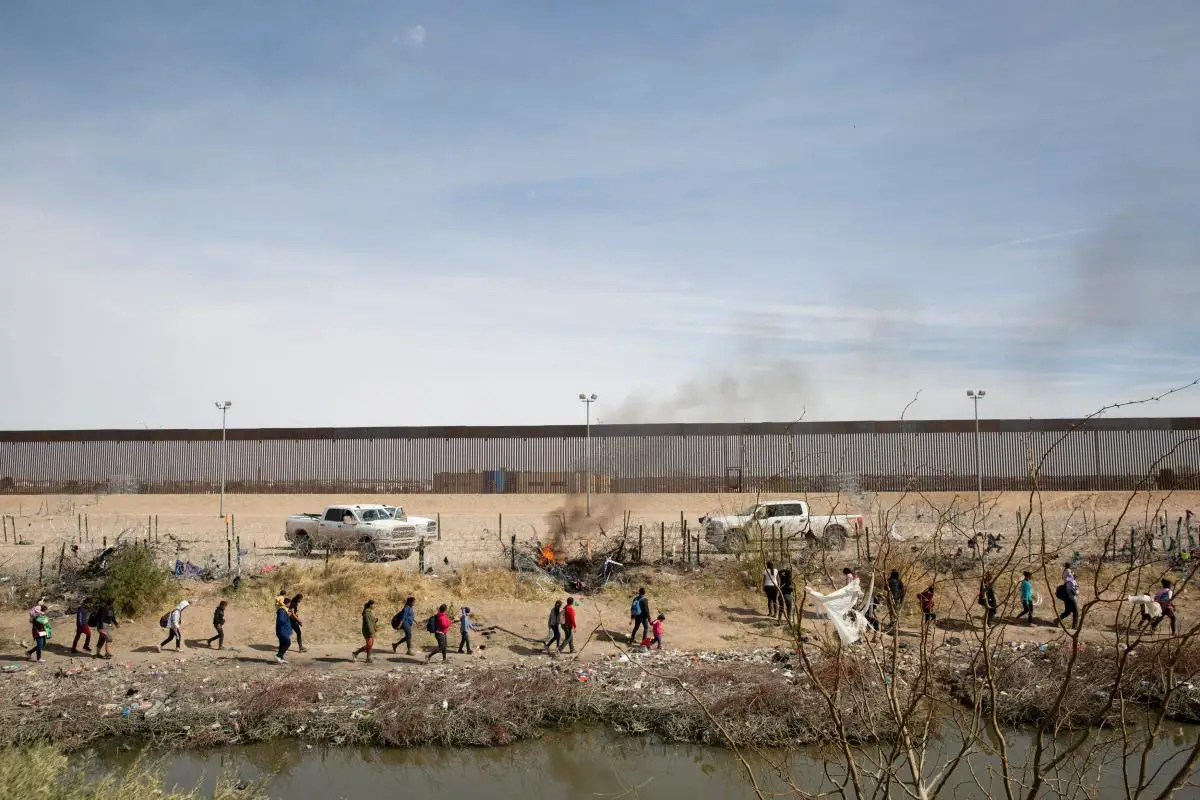WASHINGTON − The Supreme Court on Monday rejected an attempt by five states to defend a 2023 Biden administration border policy that the states fear the administration has abandoned.
The Justice Department said it continues to fight a legal challenge to the policy, and the states can’t show they have a direct enough interest to intervene.
Plus, the administration has since rolled out a new border rule that is tougher.
Still, Kansas and four other states with Republican attorneys general, want to keep in place a 2023 policy aimed at preventing migrants from trying to seek asylum at the southern border without having used a government app to make an appointment or first seeking protection in a country they passed through on their way to the U.S.
The Biden administration imposed the rule, which is set to expire in May, to prevent a border rush after pandemic-era restrictions were lifted.
The rule faces multiple challenges for being either too restrictive or not tough enough.


A federal district judge sided with immigrant rights groups opposed to the policy, but the San Francisco-based 9th U.S. Circuit Court of Appeals allowed it to remain in effect as the administration appealed the ruling.
In February, both sides said they were working on a settlement.
That prompted the attorneys general of Kansas, Alabama, Louisiana, Georgia and West Virginia to tell the courts they want to defend the rule if the administration is giving up.
“If the federal government acquiesces in a closed-door settlement – effectively letting public-interest groups dictate national immigration policy – the states will be deprived of their right to public participation in administrative rulemaking,” the attorneys general told the Supreme Court.
A divided appeals panel rejected that request, saying in part that the harms the states claimed they’d experience if the rule went away were “incidental” and “speculative.”
Judge Lawrence VanDyke, who was appointed to the bench by former President Donald Trump, disagreed. VanDyke said the states should get to intervene because they have increased administrative and service costs when noncitizens take up residence.
VanDyke also called the administration’s settlement negotiations a “surprising switcheroo.”
But the Justice Department – as well as the immigrant rights groups − told the Supreme Court that allegation doesn’t square with the fact that the administration has taken additional steps to control the border.
In June, President Joe Biden signed an executive order prohibiting migrants from seeking asylum between ports of entry when the number of unlawful border crossings tops 2,500 along the southern border.
Immigrant rights organizations are challenging that order.
This article originally appeared on USA TODAY: Supreme Court rejects states’ efforts to intervene in border dispute


Leave a Comment